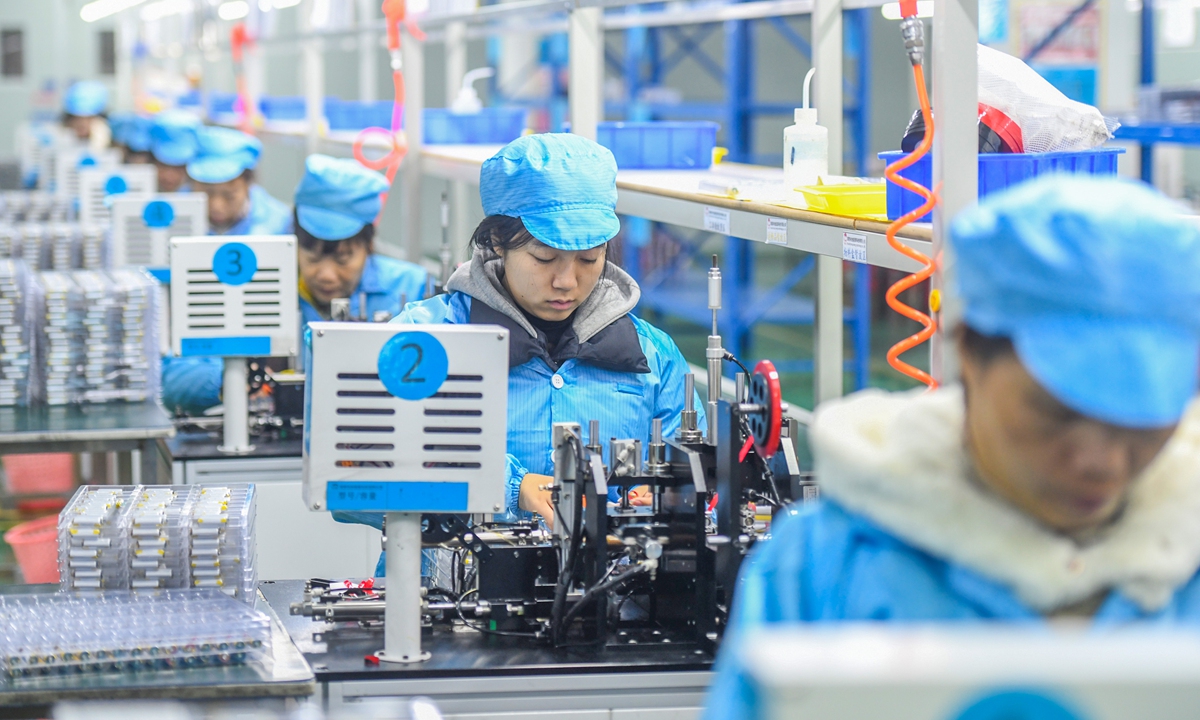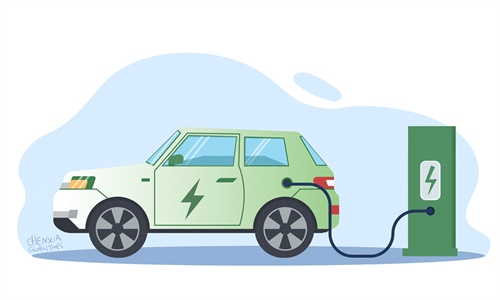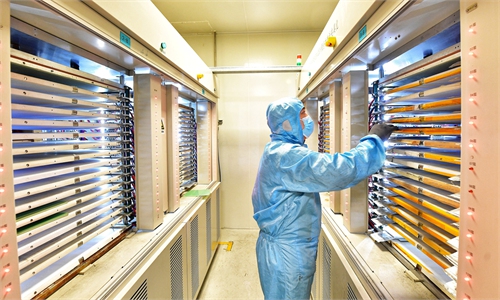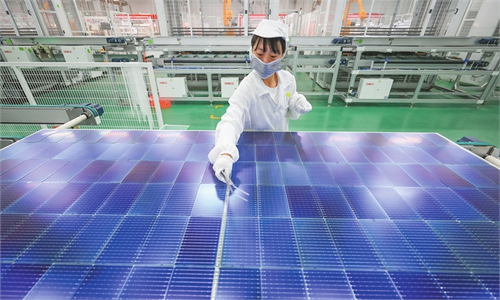
Workers are busy on the lithium battery production line at a new-energy company in Yongzhou, Central China's Hunan Province on December 30, 2024, as they strive to boost production at the end of the year. In the first ten months of 2024, China's total lithium battery production reached 890 GWh, marking a 16 percent year-on-year increase, according to official data. Photo: VCG
China's proposed export restrictions on lithium battery cathode material preparation technology and lithium extraction technology is designed to safeguard China's core technologies and provide clear guidance for companies engaging in international technology exchange, Zhang Jiangfeng, vice president of the lithium branch of China's Nonferrous Metals Industry Association, told the Global Times on Tuesday.
The Ministry of Commerce (MOFCOM) on Thursday issued a notice soliciting public opinion on the adjustment of a catalog of technologies that are subject to export bans or restrictions, as part of an effort to strengthen the management of technology imports and exports. Lithium battery cathode material preparation technology and lithium extraction technology were included.
Public comments will be accepted until February 1, 2025, and the specific content of the adjustment can be found on the MOFCOM's official website.
Zhang emphasized that the move is in line with international common practices, and it provides clear guidance for technology-exporting companies to engage in legitimate and compliant international technology exchanges and cooperation.
Restrictions on technology exports will help make technology exports more organized and prevent the possible loss of China's technological advantages, as China holds a leading position in the global lithium battery industry, thanks to the efforts of Chinse researchers and industry professionals over several decades, Zhang said.
Zhang noted that the focus of this adjustment is on the technology level rather than the products themselves, and it primarily involves restrictions on technology exports rather than a complete ban.
Regarding concerns about whether the catalog will restrict Chinese companies' foreign investments, Zhang said that Chinese companies are required to seek approval from relevant government departments when engaging in technology exports to ensure legality and compliance. But once their plans are approved, they can proceed with foreign investments or technological collaborations, Zhang noted.
Zhang Xiang, an expert in the new-energy vehicle (NEV) industry, said that the move aims to use legal and regulatory means to safeguard core technologies in the NEV battery industry. "This is an important step to help preserve the NEV sector's leading position," he told the Global Times on Tuesday.



